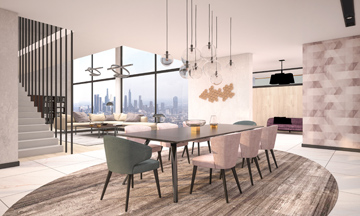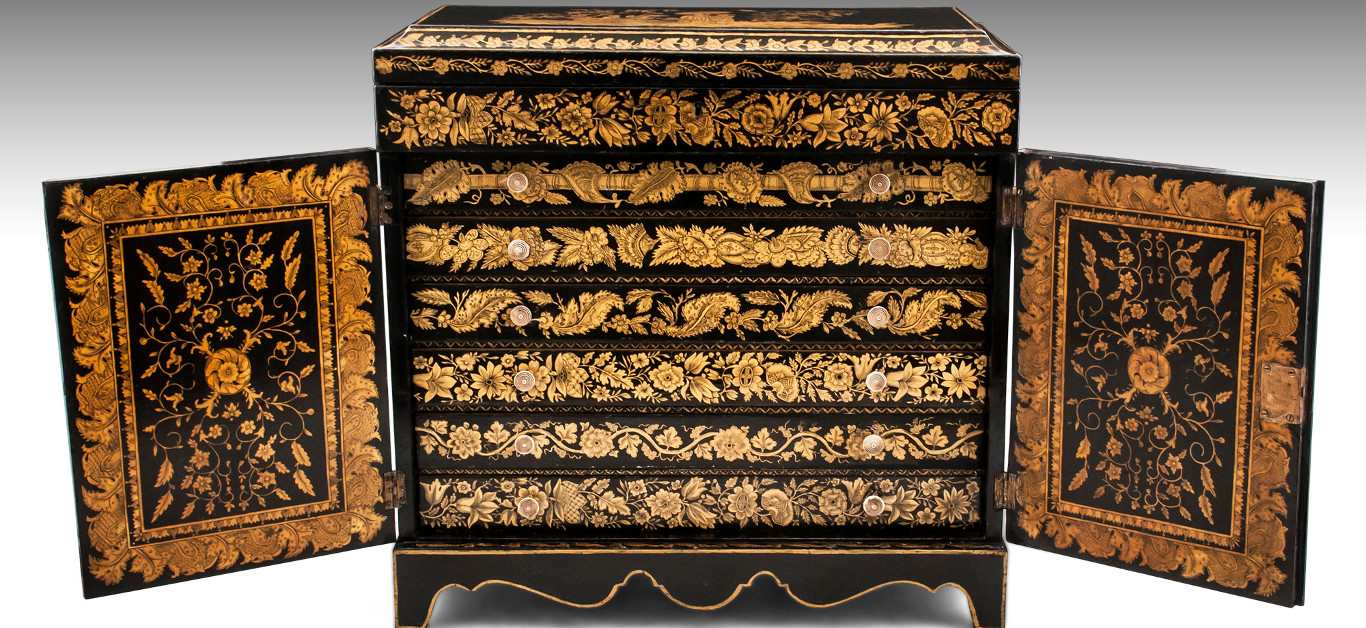
We ask Rachel Laxer, founder of Rachel Laxer Interiors and Expert Speaker at The Winter Art & Antiques Fair Olympia, for her top tips when choosing artwork and antiques for your interior.
Renovating or refurbishing a space is an exciting time, but it’s also a stressful one. No matter if it’s a room in your home, a commercial office space, or an entire building in the hospitality sector, getting luxury design just right is no easy task.
Many people choose to invest in antiques to add a statement to a room – while choosing a piece that you hope will increase in value as time goes on.
My first piece of advice, when buying antiques, is to buy for love more than anything else. There is of course a high chance that the piece will go up in value, but you should not buy it for that reason alone.
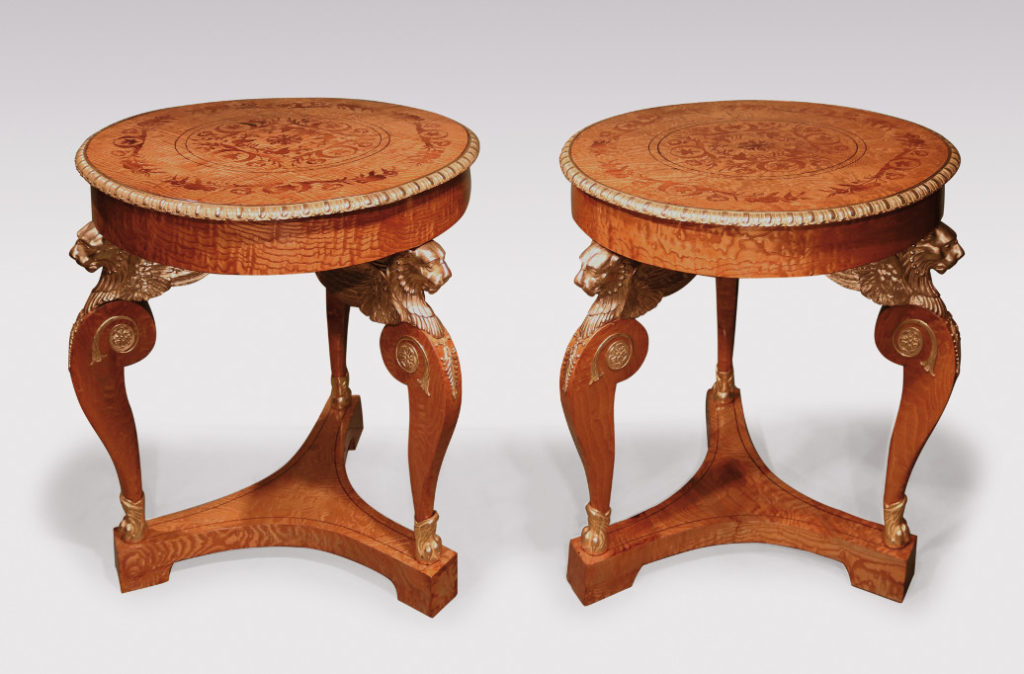
An impressive pair of mid 19th Century Hungarian Ashwood Russian Centre Tables. 1850.
You must be very careful when investing a large about of money in antiques because antiques investments are unregulated, meaning investors can’t fall back on the Financial Services Compensation Scheme or any other body if all goes wrong.
Seek out the advice of an independent expert and buy from respected dealers either art reputable fairs, such as the Winter Art & Antiques Fair at Olympia London where every piece is vetted, or from dealers who are registered with the British Antiques’ Dealers Association (BADA) or the Association of Art & Antiques Dealers (LAPADA).
For the novice investor, knowing who you’re buying from is crucial, especially if you want to ensure that what you’re buying is the real deal.
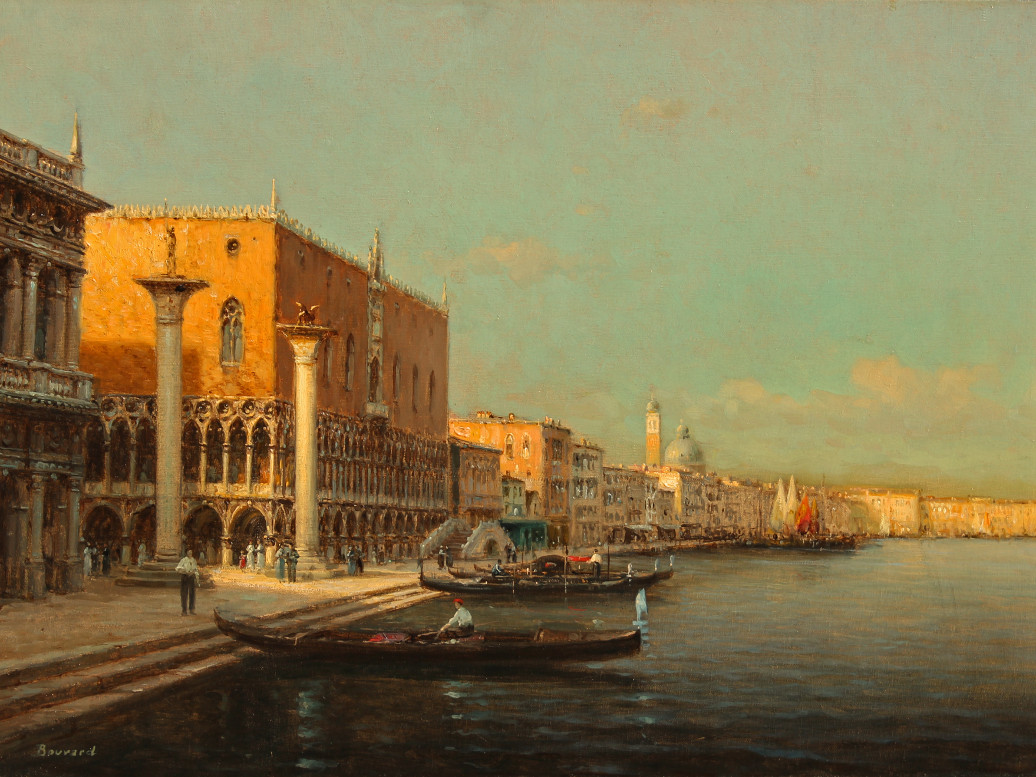
‘The Doges Palace’ by Antoine Bouvard Senior 1870 – 1955 .Oil on canvas, signed 19½ x 25½ in.
Note that price movements are based purely on demand and supply. This means there can be big price swings if certain types of antiques come in or out of favour – and that can happen.Something that many people often will not consider is the fact that buying vintage for investment purposes means that you’re likely to have it in your possession for a very long time before it increases in value, if ever.
All the more reason to buy items that you truly like and actually want to have in your home or workplace. You wouldn’t want to buy a chair that you can’t stand the look of with the hope that it’ll make you money one day – only to never make a return on it!
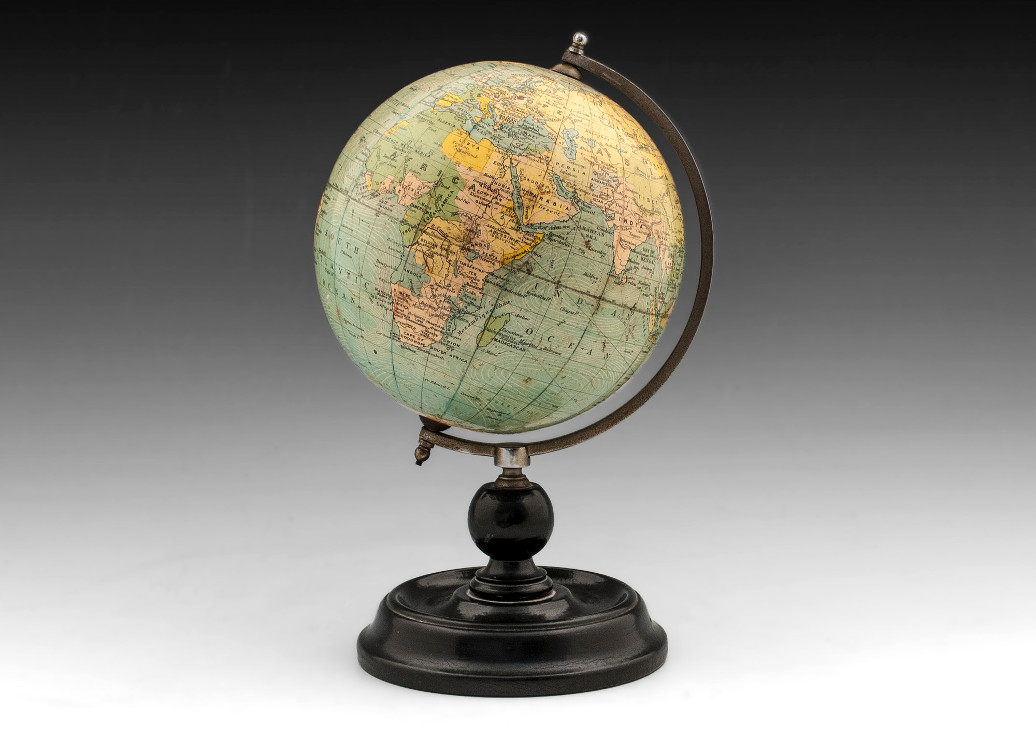
Terrestrial Globe by George Phillips & Sons Ltd, Fleet Street, London. 1930. 6 inches.
Buy with the intent that you want to own and enjoy it. Making money from the piece – for you, or future generations of your family, should be secondary.
When buying furniture, look for pieces that haven’t been restored, preferably with a good record of ownership to prove authenticity and provenance.
Small, useful Georgian and Regency pieces often see returns after a while. The key word is, of course, ‘small’. Most people, even the wealthiest, no longer want enormous dark wood dining tables that fold out to cover vast spaces and they’re unlikely to come back into fashion anytime soon.

Peter Spens ‘June night, The City from Brettenham House’ 2017. Oil on Board 101 x 121 cm £21,400
Rare items are generally the most likely to retain and increase their value. Invest in pieces that are highly unusual and in good condition. Items that highlight superior craftsmanship (especially from famous icons) are particularly great investments.
Buy pieces from various periods with flair and evoke the best from the period that it comes from. Look for pieces that showcase elite craftsmanship that truly stand out.
In terms of what people should be buying now, contemporary design has some fantastic investment opportunities. There are pieces that will certainly prove to be collectable but many haven’t been identified yet and thus are very reasonable to buy right now.
Follow the guidelines addressed but most importantly, buy what you love. You may be in luck with a return but if not, at least you’ll own something special that rings true to you.
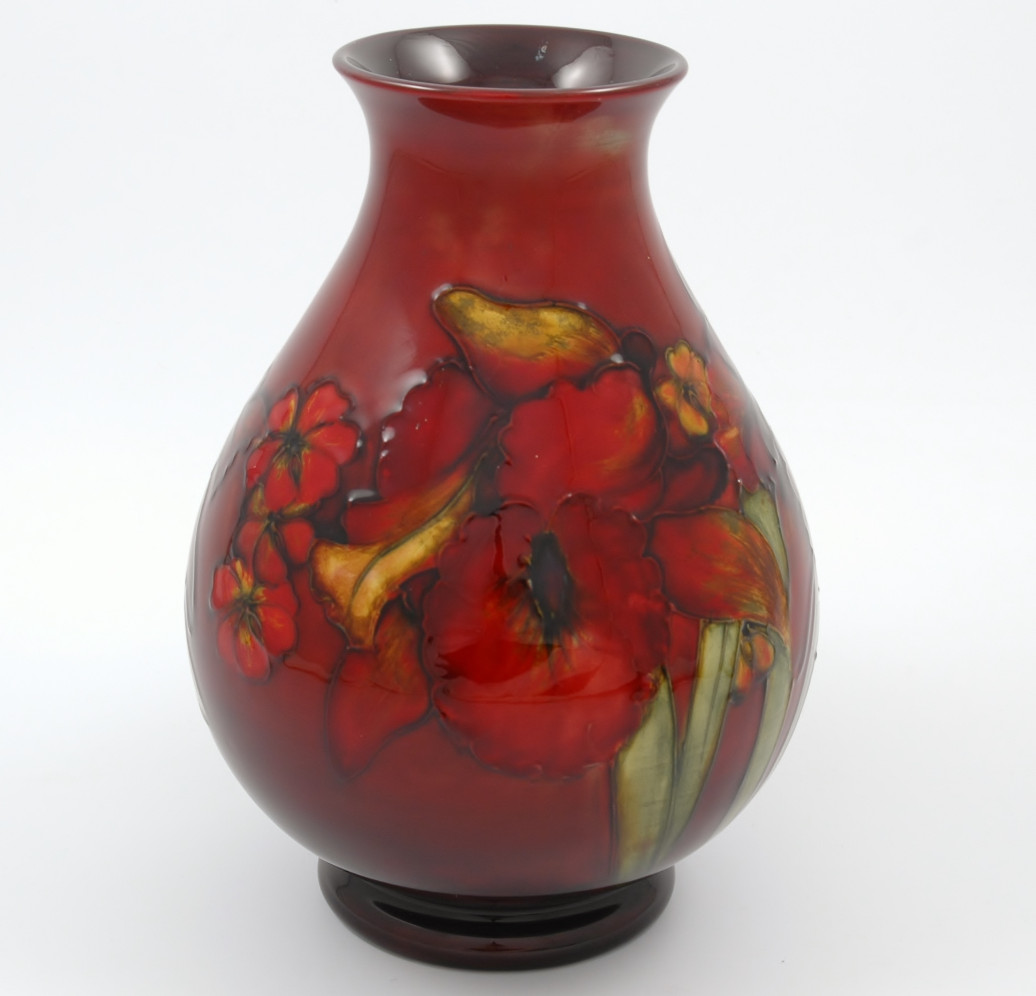
Large Moorcroft Flambé ‘Orchid’ vase by Walter Moorcroft. Circa 1950.
LLM Reporters, Nov 19, 2020
